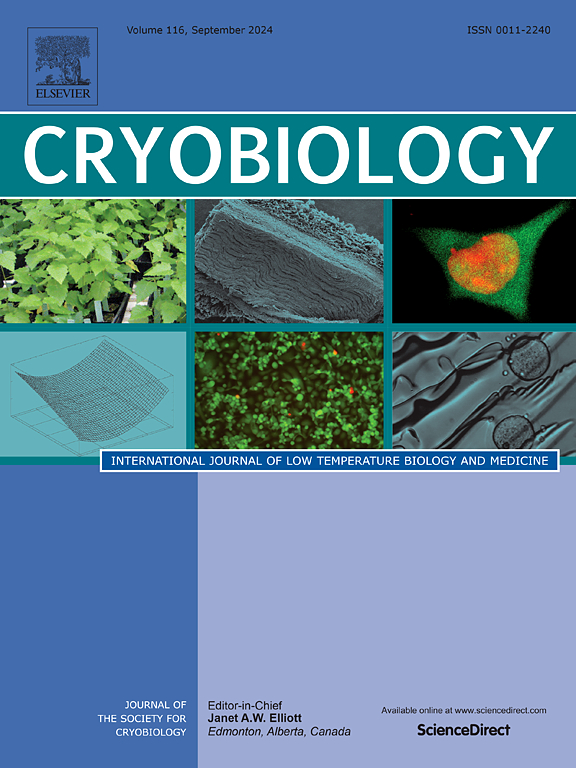贮藏年限(1年、5年和7年)对牛精子超微结构、氧化状态和受精能力的影响
IF 2.1
3区 生物学
Q2 BIOLOGY
引用次数: 0
摘要
精子冷冻保存技术是一种广泛应用于人工授精的方法。先前的研究表明,精子质量受到冷冻过程中冰晶形成和氧化应激的影响。此外,冷冻时间对精子质量也有影响。然而,关于牛精子储存年限的综合研究还很缺乏。在这项研究中,我们分析了冷冻保存1年、5年和7年的牛精子样本的运动性、功能性、膜完整性、氧化应激标志物、细胞凋亡、DNA断裂和受精能力。解冻后评估显示,与1年组相比,7年组的抗氧化能力显著下降,脂质过氧化和细胞凋亡增加(P <;0.05)。尽管精子膜和顶体的完整性相对稳定,但随着时间的推移,DNA损伤和氧化应激升高。值得注意的是,尽管卵裂率保持不变,但储存7年后囊胚发育明显减少(P <;0.05)。这些发现表明,长时间的冷冻保存对精子功能和胚胎发育有负面影响,强调在生殖应用中需要考虑储存时间。本文章由计算机程序翻译,如有差异,请以英文原文为准。
Effects of years of storage (1, 5, and 7 years) on bovine sperm ultrastructure, oxidative status, and fertilizing capacity
The cryopreservation technique for sperm is a widely recognized approach utilized in artificial insemination. Previous studies have demonstrated that sperm quality is influenced by ice crystal formation and oxidative stress during the freezing process. Moreover, the time of cryostorage also has an impact on sperm quality. Nevertheless, there is a scarcity of comprehensive research concerning the years of storage on bovine sperm. In this study, bovine sperm samples cryopreserved for 1, 5, and 7 years were analyzed for motility, functionality membrane integrity, oxidative stress markers, apoptosis, DNA fragmentation, and fertilizing ability. Post-thaw assessments revealed a significant decline in antioxidant capacity and an increase in lipid peroxidation and apoptosis in the 7-year group compared to the 1-year group (P < 0.05). Despite relatively stable sperm membrane and acrosome integrity, DNA damage and oxidative stress were elevated over time. Notably, while cleavage rates remained unchanged, blastocyst development was significantly reduced after 7 years of storage (P < 0.05). These findings suggest that prolonged cryopreservation negatively affects sperm function and embryo development, emphasizing the need to consider storage duration in reproductive applications.
求助全文
通过发布文献求助,成功后即可免费获取论文全文。
去求助
来源期刊

Cryobiology
生物-生理学
CiteScore
5.40
自引率
7.40%
发文量
71
审稿时长
56 days
期刊介绍:
Cryobiology: International Journal of Low Temperature Biology and Medicine publishes research articles on all aspects of low temperature biology and medicine.
Research Areas include:
• Cryoprotective additives and their pharmacological actions
• Cryosurgery
• Freeze-drying
• Freezing
• Frost hardiness in plants
• Hibernation
• Hypothermia
• Medical applications of reduced temperature
• Perfusion of organs
• All pertinent methodologies
Cryobiology is the official journal of the Society for Cryobiology.
 求助内容:
求助内容: 应助结果提醒方式:
应助结果提醒方式:


